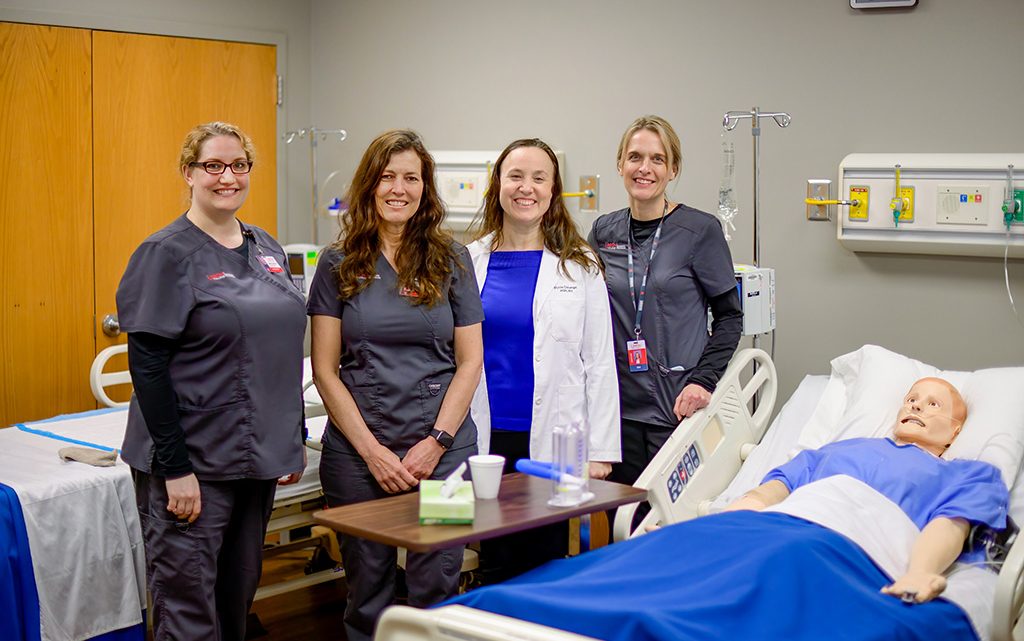“Resiliency is being able to bounce back from adversity using your resources to help persevere through a situation and not decline as an individual.” – Prof. Elysia Ockenga
Resiliency is not a trait that we easily discover at a moment’s notice. It takes time to nurture. Roles evolve during times of challenge. With the recent pandemic, students experienced the challenges of becoming dependents once again under a parent’s roof, parents paying thousands of dollars in tuition that includes a meal plan to be flushed down the drain, and having to coordinate classes with different time zones.
Whatever parents and students were feeling during this time, professors felt the same, maybe more. That is the consensual feeling of four nursing professors who taught during the spring semester of 2020, when the world was facing a time of uncertainty.
To talk about how resiliency is nurtured, the cookie-cutter dictionary definition of resilience is not going to be adequate. Defining resilience is personal. Nursing professor and vice president of academics at Union College, Debbie Eno, describes resiliency as the need “to keep going even though circumstances are not in your favor.”
Three years ago, the words “EXTENDED SPRING BREAK” as an email header were the best news to a college student whose mental health and stress devoured them through the winter semester. To professors, however, those words had an entirely different meaning. Dr. Larinda Fandrich, professor of Medical Surgical II at Union College, revealed that “the extended spring break was more for the professors to organize class content and teach them to students through a new way.” It makes sense since a switch from in-person learning to remote requires a new level of instruction- from both professors and students.
Union College professors have other roles outside of teaching. One is to support their students, no matter what challenges they personally face. Another is to be an advisor—to guide students through their educational programs and establish communication between students and themselves. Three roles to juggle in an academic environment was tough with a world-altering phenomenon taking place.
Being resilient was the glue that held it all together.
Union College prides itself on having staff and professors willing to adapt to changes, but some challenges were tough to overcome within the span of a week. Becoming more technically savvy and finding ways to present hands-on concepts through the aid of virtual simulations requires more than a weekly Zoom call. Fundamentals professor, Rebecca Randa, describes the use of simulation as “being able to practice what students have learned, despite it being less hands-on.” Simulation became the lifeline of the students who were in Union’s program at this time. Yes, with the click of a button, scenarios popped up, allowing students to utilize their critical thinking skills, just as a real nurse would.
Thankfully, Union College’s nursing program has a standard of academic integrity that students must adhere to. With the change to remote learning, students still managed to keep the test average policy of Union College at 76%. Eno states that Union added a “pass or no pass” policy for those students who did not meet the requirement so they could retake the course with no penalty to their GPA.
Ockenga acknowledges that “there are always going to be challenges to learning. To overcome those challenges, communication is needed.” Students were encouraged to talk to their professors about anything at this time, from struggles in the classroom to struggles one might face being back at home with family.
College is a tough time. The pandemic made it even tougher. The flexibility and willingness of professors to find new ways to make sure their students got information was awe inspiring.
Andrew Sagala is a junior nursing major at Union College from California.










